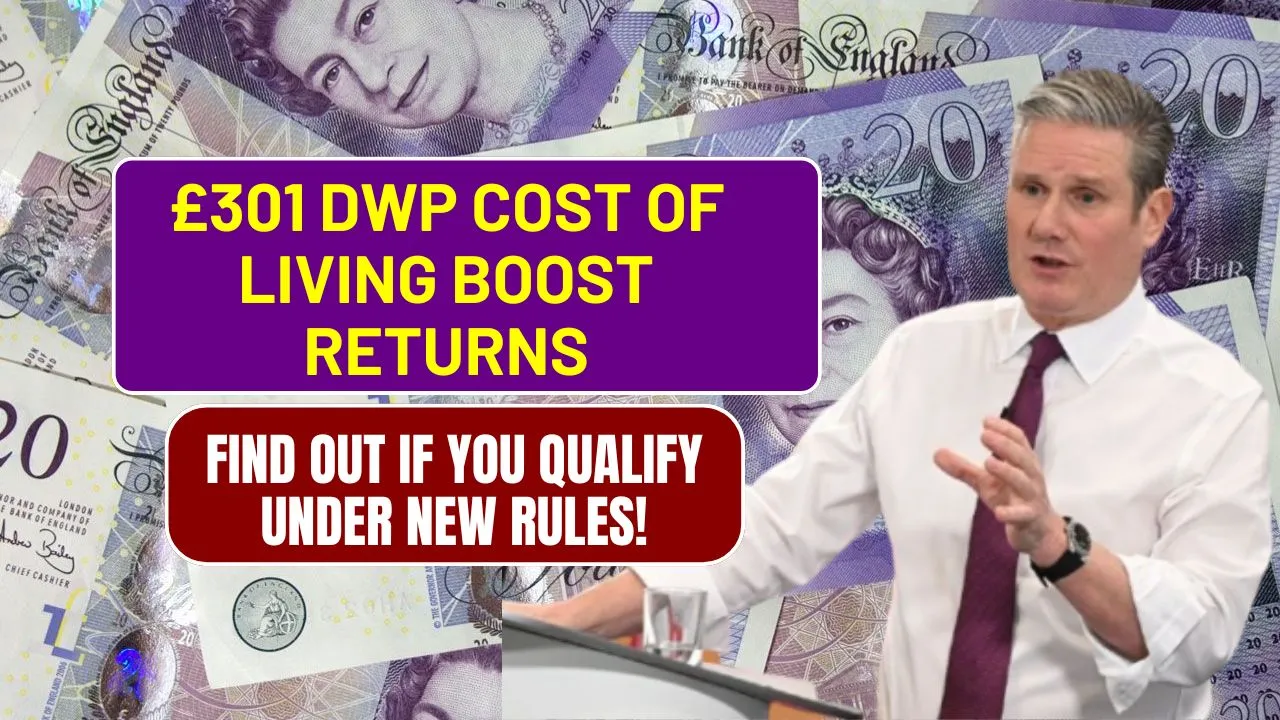£327 / Month DWP unpaid carer payment: Caring for someone with a disability or long-term illness is a demanding role, often filled with emotional highs and lows. Many carers devote over 35 hours a week to support loved ones, which can impact their finances. To help, the UK government provides the £327 / Month DWP unpaid carer payment, also known as Carer’s Allowance. This benefit acknowledges the valuable work carers do and offers vital financial relief.
This article explains how the £327 / Month DWP unpaid carer payment works, including who qualifies, how to apply, payment schedules, and how it connects with other support options. It’s designed to guide you through each step with clear, practical advice—whether you’re already claiming or considering applying.
£327 / Month DWP unpaid carer payment
The £327 / Month DWP unpaid carer payment is a taxable benefit available to those dedicating at least 35 hours a week of unpaid care. To receive up to £327.60 every four weeks (or £81.90 weekly), you must meet specific conditions. These include age, income, education, and residency requirements, and the person you’re caring for must receive a qualifying disability benefit. With clear guidance on eligibility, payment dates, and how this support works alongside other benefits like Universal Credit and Pension Credit, this section aims to help carers access the aid they deserve.
Overview Table
| Feature | Details |
| Payment Amount | £327.60 every four weeks or £81.90 weekly |
| Hours of Care | Minimum 35 hours per week |
| Income Threshold | Maximum of £151 per week after deductions |
| Age Requirement | Must be 16 years or older |
| Education Limit | Not in full‑time education (21+ hrs/week) |
| Residency | England, Scotland, or Wales |
| Qualifying Benefits | Attendance Allowance; DLA; PIP; AFIP |
| Payment Frequency | Weekly in advance or four-weekly |
What is Carer’s Allowance?
Carer’s Allowance aims to ease the financial strain on unpaid carers providing essential daily care. Designed as a DWP support payment, it is taxable and meant to recognise the time and energy carers invest. If you help someone with personal care, emotional support, or supervision and they receive a qualifying benefit, you could be eligible. This section explores how the allowance rewards your dedication and addresses financial needs without imposing means testing.
Eligibility
To qualify for the £327 / Month DWP unpaid carer payment, you must tick every box below:
- Be at least 16 years old
- Provide 35 hours or more of care per week
- Have income of £151 or less per week (after tax, NI, and some expenses)
- Not be in full-time education (over 21 hours per week)
- Be living in England, Scotland, or Wales
And the person you care for must receive one of these:
- Attendance Allowance
- Disability Living Allowance (middle or highest care rate)
- Personal Independence Payment (daily living component)
- Armed Forces Independence Payment
Meeting each requirement decreases the likelihood of application delays or rejection. Clear evidence of hours, income, and the other person’s claim for a qualifying benefit is essential.
How to apply
Applying for the £327 / Month DWP unpaid carer payment is simple and can be done online or via post. Follow these steps:
- Gather the necessary documents
- Your National Insurance number, bank account details, and a breakdown of weekly earnings
- The cared-for person’s National Insurance number and proof of their disability benefit
- Your National Insurance number, bank account details, and a breakdown of weekly earnings
- Go online
- Visit gov.uk and complete the Carer’s Allowance claim form
- Visit gov.uk and complete the Carer’s Allowance claim form
- Request a paper form
- If preferred, call the Carer’s Allowance Unit for a postal form
- If preferred, call the Carer’s Allowance Unit for a postal form
- Processing time
- Claims usually take 6 to 12 weeks to process
- Approved claims can be backdated to when you first qualified
- Claims usually take 6 to 12 weeks to process
- Choose how you’re paid
- Decide between weekly or four-weekly payment schedules
- Decide between weekly or four-weekly payment schedules
Payment dates and amounts
There are two payment options:
- £81.90 each week, paid in advance
- £327.60 every four weeks, paid in advance
Once your claim is approved, your first payment will include any back-pay due. Payments are sent directly into your bank account. To stay on track, check your bank account and update details with DWP if your circumstances change.
Other benefits and impacts
Carer’s Allowance interacts with several other benefits:
- Universal Credit – You may qualify for the Carer Element, which adds extra support
- Income Support or Pension Credit – Carer’s Allowance might reduce them, but you could get a Carer Premium
- Tax – Carer’s Allowance is taxable; if your total income exceeds the personal allowance threshold, notify HMRC
- National Insurance credits – Claiming gives you Class 1 credit, helping build entitlement to the State Pension
- Council Tax discounts – Many local councils offer breaks for registered carers
Understanding how these links work is important so you don’t miss additional help or unexpectedly lose benefits.
Extra support
Beyond financial assistance, being on Carer’s Allowance unlocks options like:
- Carer Premium – Extra for legacy benefits
- Carer’s Credit – Helps fill gaps if you don’t earn enough for NI contributions
- Blue Badge – Parking support if the person you care for has mobility issues
- Grants and funds – Organisations like Carers UK offer help with education, break-long care or special equipment
Being aware of these supports means you can better manage your wellbeing and care role.
Advice for carers
Staying organised helps you juggle responsibilities:
- Stay financially organised — Track income, claims, and apply for council or transport discounts
- Join local carer networks — Carers Trust and Carers UK offer peer support, tips, and breaks
- Ask about hidden discounts — Carer discounts aren’t always obvious—ask when using services
- Take time for yourself — Avoid burnout; schedule free time and family support
- Update your claim — If circumstances change (income, hours, moving regions), inform DWP straight away
Key Advice
- Budget Smart – Regularly review your finances and look for deals
- Connect with others – Carer groups help with emotional and practical support
FAQs
1. Can I work while receiving Carer’s Allowance?
Yes, but your weekly income must not exceed £151 after deductions, including tax, NI, and certain work-related expenses. Over this limit? You cannot receive the allowance during that week.
2. Will Carer’s Allowance reduce my Universal Credit?
Possibly. Universal Credit may adjust based on overlapping entitlements. However, the Carer Element can provide additional support, so review your full claim.
3. Can I get paid if I only care sometimes?
No. You must provide at least 35 hours of care per week. If weekly hours dip below this, your payment may be paused until you meet the requirement again.
4. Do I have to pay tax on Carer’s Allowance?
Yes. Carer’s Allowance is taxable. If your total income (including allowance) goes above the personal allowance threshold (currently £12,570 annually), you need to report it and may pay tax.
5. Can I claim Carer’s Allowance if I live in Northern Ireland?
No. This payment is available only to those living in England, Scotland, or Wales. Northern Ireland has a different benefits system for carers.
Final thought
Caring for someone full-time can dramatically change daily life. The £327 / Month DWP unpaid carer payment is designed to ease some of the stress and help you continue your vital role. Keep informed, stay organised, and connect with other carers—it will make a difference. If you’ve found this guide helpful, please share it with fellow carers or comment below with your experiences. And don’t forget to explore related articles for more insights and support.
Call to action: Let us know in the comments how Carer’s Allowance has helped you—or ask your questions here. Share this article with other carers so they can access the support they deserve.












